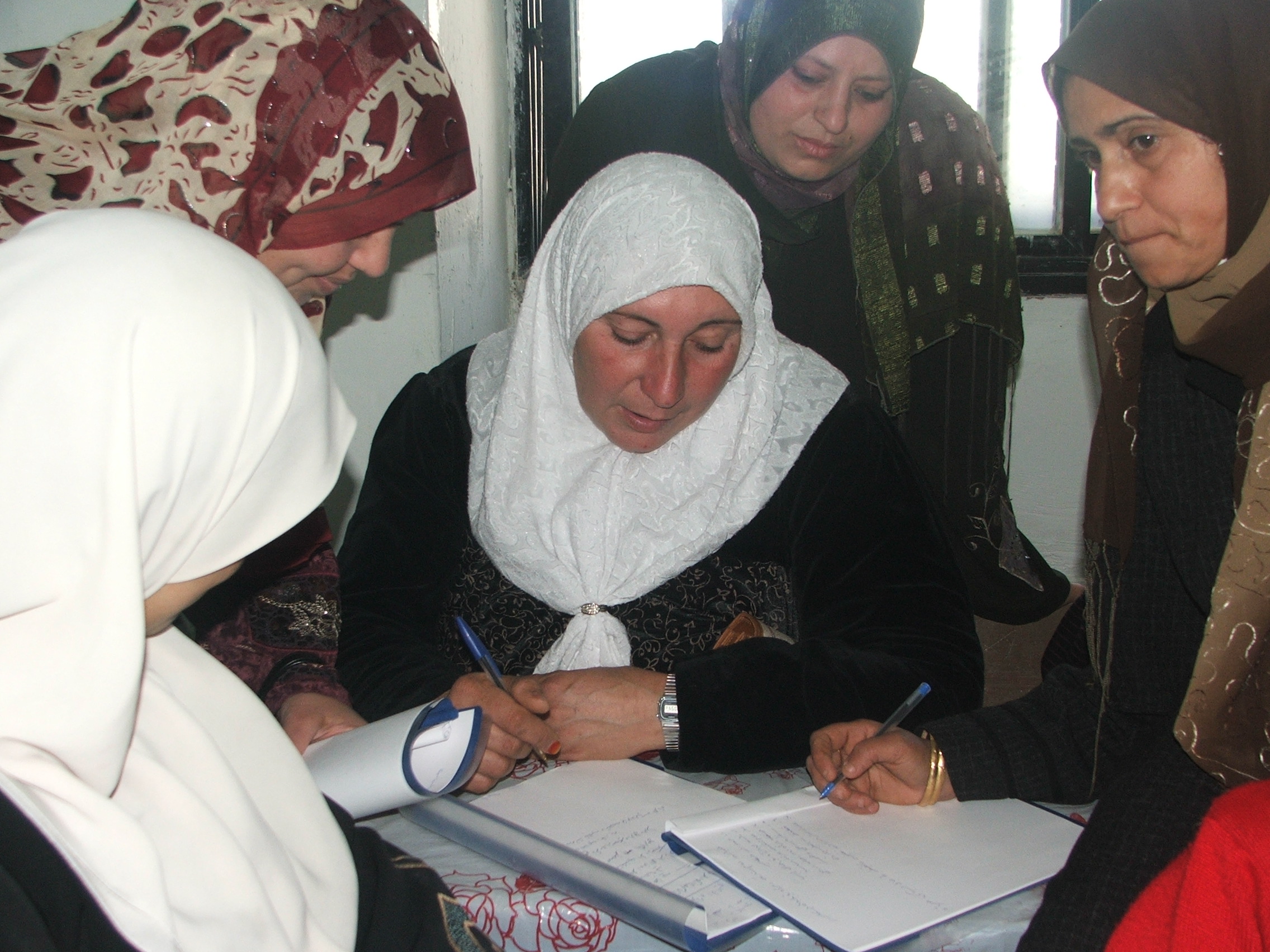Divorced women in the Gaza Strip face high rates of unemployment and violation of their rights due to attitudes that shun women out of wedlock.
Why we care: Divorced women are disproportionately affected by the devastated economy and ongoing violence.
How we’re solving this: Providing legal rights awareness workshops and pro bono legal services to divorced women in poor and violence-prone neighborhoods.
For more than eight years, a crippling blockade across the Gaza Strip has led to the collapse of the economic system, resulting in increased levels of poverty and unemployment. Women have suffered the most, as many are dependent on their families and husbands for financial support. Additionally, during the last three years, the percentage of divorces in the Gaza Strip hit an all time high of 15 percent.
Many people believe that women should stay at home and remain dependent on their husbands. Therefore, divorced women face discrimination when seeking work and have trouble accessing legal advice and representation. In addition, widespread social stigma influences decisions in judicial and legal institutions, often leading to women not receiving a fair case nor getting the mental health support they require, as well as losing their children and property.
These injustices cannot be ignored.
The Palestinian Developmental Women Studies Association (PDWSA) will ensure that women get the justice and legal support that they are entitled to. PDWSA will conduct legal awareness workshops, disseminate brochures, and organize public advocacy events to educate women from poor neighborhoods in North Gaza about their legal and political rights. PDWSA will also take on 30 legal cases, ensuring that women receive the best legal advice and counsel for their proceedings. Overall, women will acquire and pass on knowledge that all women, regardless of their marital status are entitled to; a life of dignity and legal protection.
As a result PDWSA will:
- Teach 200 women about their legal rights, particularly the right to maintain custody of their children.
- Train 200 women how to advocate for their rights, as well as gain access to affordable healthcare and psychosocial counseling.
- Sensitize over 500 community members on women’s rights.
- Provide legal advice and representation to 30 women.
- Publish multiple studies and brochures on women’s political and legal rights.


